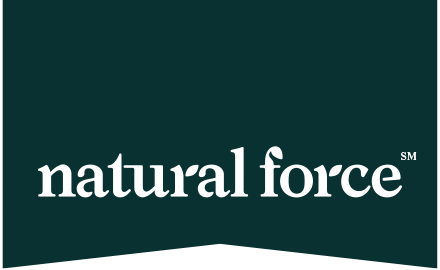Best Keto Diet Supplements for 2025: The Ultimate Keto Supplement Guide
If you’re looking to begin your journey with the ketogenic diet or take your current keto diet to the next level, it may be time to explore the best keto supplements. Finding the right supplements for your keto diet can help you get through the fat adaptation phase without keto flu symptoms, and even improve your physical and cognitive results. Find out which keto supplements to experiment with and how in this article.
Why These Supplements Matter for Your Keto Journey
Keto isn’t just about low carb — it’s about shifting your metabolism and supporting your body through that transition. Each of the six key supplement categories discussed (electrolytes, MCT oil, fiber, adaptogens, clean protein, and exogenous ketones) plays a specific role in reducing keto flu symptoms, ramping up ketone production, maintaining gut and muscle health, and sustaining energy levels.
In this article, you will learn about the best keto supplements, including:
- Electrolytes and other micronutrients
- MCT Oil
- Fiber
- Adaptogenic herbs
- Clean protein
- Exogenous ketones
1. Electrolytes
Sodium and other electrolyte levels tend to drop on the ketogenic diet, especially during the first few weeks. Supplementing with minerals like sodium (3-5 grams), calcium (1,000 mg), potassium (2-3 grams), and magnesium (~200-400 mg) will do wonders for your energy as well as any aches and pains you notice during the beginning of the diet.
Frequency: Daily, with or without food
2. MCT Oil
Many people find it difficult to get enough fat on the ketogenic diet. Most experts recommend getting anywhere from 70-90% of your calories from fat, which may feel strange for most people coming from a conventional diet.
MCT oil is a great, clean source of healthy fat that is easily converted into ketones in your liver. One gram of MCTs per kilogram of body weight has been established as safe. However, MCTs can cause digestive distress, so it’s best to start slowly and work your way up.
Start with 1 teaspoon per day, working your way up to 1-2 tablespoons per day. If you experience loose stools or nausea, take a few days off or until things go back to normal. For more info on MCT dosage, check out this article.
Frequency: Daily, with or without food
3. Fiber
It’s common for fiber intake to drop dramatically on a ketogenic diet because fiber is technically considered a carbohydrate. However, because fiber will not spike blood sugar or insulin levels like other carbs, it’s not “counted” by most people in their total net carb intake.
Make sure to get plenty of low-sugar, high-fiber vegetables into your diet. For more guidance, check out this post on what to eat when you go keto. If you’re still finding it hard to get enough fiber, try adding a natural fiber supplement like psyllium husk.
Frequency: 35-40 grams of fiber as food or a supplement with your meal
4. Adaptogenic Herbs
Adaptogenic herbs are natural substances, usually herbs or fungi, that help your body adapt to physical and mental stress. They’ve been used for thousands of years by a number of cultures to help calm the body and mind, balance hormones, and even improve your workouts. Adaptogens work with your body, helping to balance and regulate hormones and support your immune system, making them a great addition to your keto diet.
In the first weeks of your keto diet, you may feel the physical repercussions as your body adapts to using fat as fuel instead of carbs. Regular use of adaptogenic herbs can help your body adapt to this stress, plus help with energy levels, cognitive function, and sleep.
Frequency: Daily, usually away from food
5. Clean Protein
The keto diet is a “moderate” protein diet, but getting anywhere from 1-1.6 grams of clean protein per kilogram of body weight will help you to maintain and even build muscle, even if you’re in a caloric deficit! Clean protein sources include pastured chicken, grass-fed beef, lamb, and wild-caught fish, to name a few. But eating enough protein can be a challenge.
Make sure you’re getting adequate protein with a high-quality complete protein supplement, especially after your workouts.
Frequency: Daily
6. Exogenous Ketones
Exogenous ketones are supplemental ketones that usually come in liquid or powdered form and are commonly used as a meal replacement. Many people on the keto diet swear by exogenous ketones, but it’s important to keep in mind that, while they will raise your blood ketone levels, they are not meant to directly cause weight loss. Although they are used to suppress appetite, they should be considered an energy supplement or meal replacement.
Frequency: Optional, as a meal replacement
As with any nutrient supplementation, it’s best to consult with your doctor or another qualified practitioner before you begin.
We’re curious – have you used supplements while experimenting with the keto diet? Share what’s worked for you in the comments below!
Frequently Asked Questions (FAQ)
- Which keto supplements are essential during the fat-adaptation phase? Electrolytes, MCT oil, and clean protein are among the most impactful in the early weeks of keto when your body shifts fuel sources.
- How much MCT oil should I take on keto? Start with 1 teaspoon per day, then gradually increase to 1–2 tablespoons per day as tolerated. Natural Force
-
Are exogenous ketones necessary for a keto diet? Exogenous ketones can support appetite suppression and boost ketone levels, but they’re optional—proper diet and supplementation often suffice.
(Want articles like this via email? Here's the sign up)

